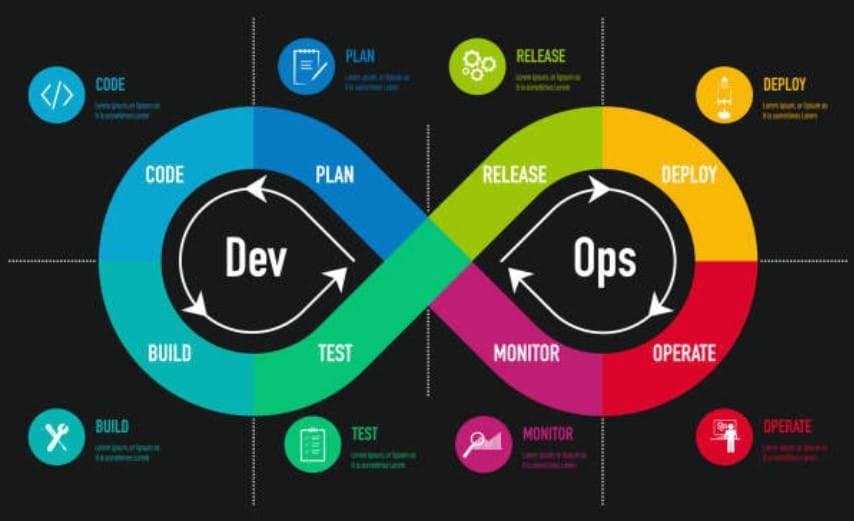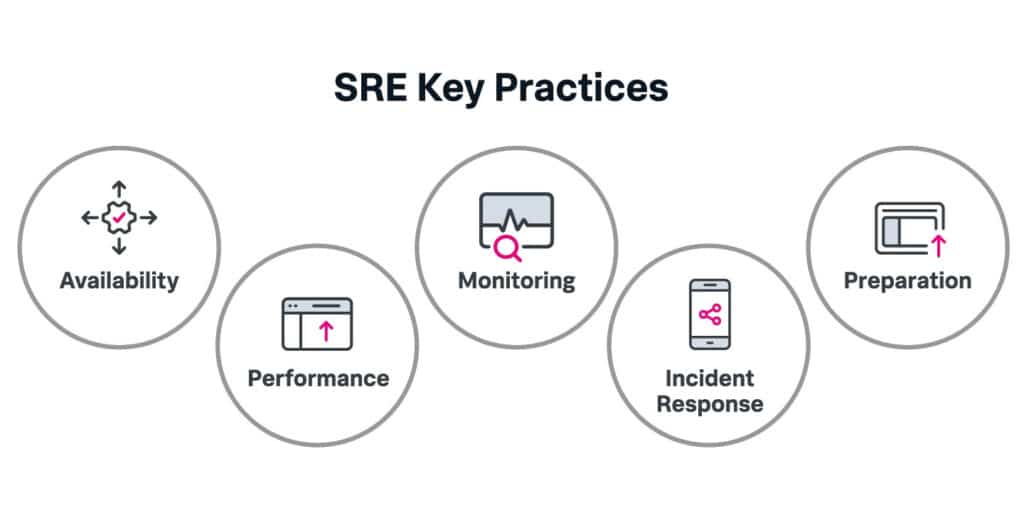DevOps vs. SRE – Site Reliability Engineering – and DevOps are two highly sought-after IT practices that share similarities. It is essential to understand their respective roles and how a company can benefit from both simultaneously.
Devops: what is it?
The term DevOps refers to a practice that enables a single IT team to handle the entire application development cycle, including testing, development, deployment, and monitoring. DevOps system administrators bridge the gap between operations and development teams. The team responsible for coding is also in charge of maintaining the software once it’s in production. This means that traditionally separate development and operations teams collaborate to enhance software releases.
The goal of the DevOps model is to develop systems more rapidly while delivering features and updates regularly, based on the company’s needs.

The benefits of a DevOps engineer
The DevOps engineer or team brings significant benefits to the company. Firstly, there are technical benefits: they simplify the management of the IT system, handle software implementation and delivery within a continuous process, and enable faster and easier problem resolution on the system.
Thanks to them, the software delivery capacity becomes more secure. From a corporate culture perspective, the DevOps engineer also facilitates greater team productivity with structured management.
SRE: what is it?
Invented in 2003 by Ben Treynor, a programmer at Google, Site Reliability Engineering originally served to support developers in building large-scale applications. Today, the primary goal of SRE is to develop software systems and automated solutions across all operational aspects. Consequently, the site reliability engineer undertakes tasks traditionally handled by operations teams, surrounding themselves with engineers with software expertise to solve complex problems. Therefore, site reliability engineering can be seen as a set of practices that integrates software engineering into operations, enhancing the efficiency and reliability of software systems and improving workflow.

The benefits of an SRE team
The SRE team plays a crucial role in ensuring that the platform is operational for customers at any given time, which is essential when dealing with large-scale systems. Site reliability engineering also enables companies to automate the IT system, thereby freeing up developers’ time to innovate on other projects.
DevOps or SRE ?
The differences in the contributions of DevOps and SRE may not be immediately obvious. However, each brings its advantages to the company, and they are simultaneously highly effective.

Firstly, DevOps is more widely adopted today because it is not tied to any specific organization or company, unlike SRE, which is fundamentally linked to Google. As a result, Google’s competitors can more easily embrace DevOps than SRE. Additionally, SRE has not yet seen widespread use because the term DevOps colloquially encompasses all practices that involve collaboration between operations and development, which could also include SRE.
DevOps engineers work on a product or application with a focus on optimization. Using agile methodology, they build, test, deploy, and monitor applications quickly, with control and quality. The DevOps team’s work is aimed at making the entire organization more efficient and automated. On the other hand, they concentrate on the overall processes that should lead to a successful product deployment.
An SRE team collaborates closely with the development team. Their goal is to leverage operational data and software engineering, primarily by automating IT operations tasks, which speeds up software delivery. They streamline IT operations using methods that were previously only used by software developers. Site reliability engineering focuses on keeping the application or platform available to customers, prioritizing customer needs through service level agreements, service level indicators, and service level objectives.
SRE and DevOps: teams that come together
SRE vs. DevOps teams have a lot in common because they both employ deployment methods to monitor production and ensure that operations management functions as expected. Their shared goal is to achieve better outcomes in complex systems. Both must focus on team diversity and break down organizational silos by creating shared responsibilities: from initial code programming to software releases, deployment, production, and maintenance. Therefore, they can complement each other within a company; SRE optimizes platform reliability, while DevOps optimizes software delivery and management.
If you’re looking to master one of these computer engineering techniques, we invite you to explore DataScientest’s data science courses.










